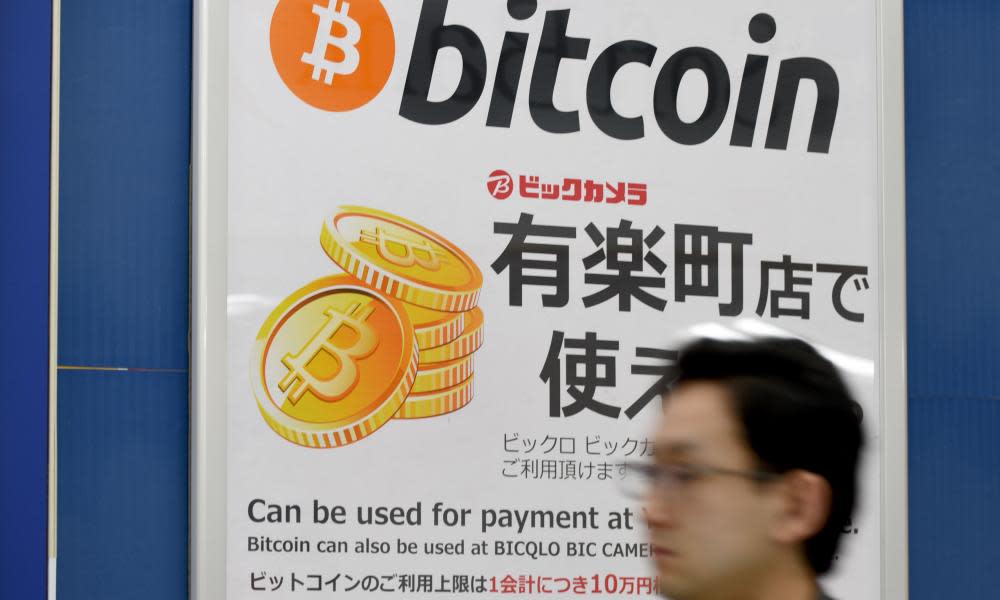The Guardian view on cryptocurrencies: bubble and chic | Editorial

All money is a work of the imagination. Pound coins, dollar bills, and even the fragments of computer code known as bitcoins can do their work only because of a collective agreement that they will. That doesn’t mean they are imaginary. Their power is real, but it arises from mass belief. When people lose faith in a currency it can lose all its purchase on the real world and be reduced to nothing more than squiggles on paper, tulip bulbs or figures in a spreadsheet cell. So there is nothing unnatural in the efforts of libertarian computer programmers to invent their own money, and then to use these new currencies to buy things, among them old-fashioned currencies like dollars and euros. So long as enough people agree to believe in them, they exist like any other. Bitcoin, the oldest, best known and most valuable, has lasted for nine years now.
All these cryptocurrencies are made possible by an ingenious solution to a problem which would otherwise make purely digital currencies impossible. A digital currency is one which exists solely as a string of numbers inside a computer and copying numbers at lightning speed is the core competence of any computer. So there seemed to be no way to stop any given piece of digital currency from being copied and spent unlimited times. This ease of copying is what devastated the music industry and many others. It seemed to make digital money impossible even in theory. The solution turned out to be a programming device called the blockchain, which ensured that any transaction could be recorded in a way that was impossible for anyone ever to change. Applied to money, this means that the same bitcoin can’t be spent twice without changing hands.
There remains the problem of what to spend it on; and the experience of the last nine years suggests that they are mostly spent when anonymity is an advantage to buyer, or seller or both: drugs and ransoms for malware are the ones for which bitcoin is chiefly known Although some businesses have accepted it in payment for legitimate goods, their number is shrinking as it soars against the dollar. Why spend it at all when you could hoard it?
Because cryptocurrencies can be anonymous, it’s impossible to know how many people use them. Estimates from the Judge Business School in Cambridge suggest that there are between 5m and 10m active users in the world today. Very few are using it as currency, or as a medium of exchange. Instead it is being used as a means of speculation. The exchange rate between the bitcoin and the dollar has seen the price fluctuate crazily in the last three years, from $1,242 to $246 and back up above $2,800 again. Why not, when it is worth only whatever buyers and sellers agree at any one moment that it should be?
Another, rival, cryptocurrency, ethereum, has appreciated by more than 40 times against the dollar this year. At current prices, the two together are priced at a notional $66bn. There’s still little sign of anything except imagination to justify this.
Ethereum has technical advantages. It can itself contain computer programs which can then be run by other holders of ethereum. The hope is that contracts can be made and enforced without any human intervention, instantaneously and incorruptibly. That might save banks, for instance, an awful lot of money. The promoters of these technologies are filled with the mixture of exuberant greed and libertarian zeal that drove the earlier iterations of the internet such as the growth of the world wide web. That is a disconcerting precedent. There is a persistent belief among programmers that understanding how code works means that they also understand the world outside code. It is mistaken. The web has turned out to be something that nobody had imagined, whether they could build the underlying technology or not. It is both better and worse in many ways than we could then dream – and much more powerful. When all today’s bubbles have burst the blockchain may prove the same.

 Yahoo News
Yahoo News 
